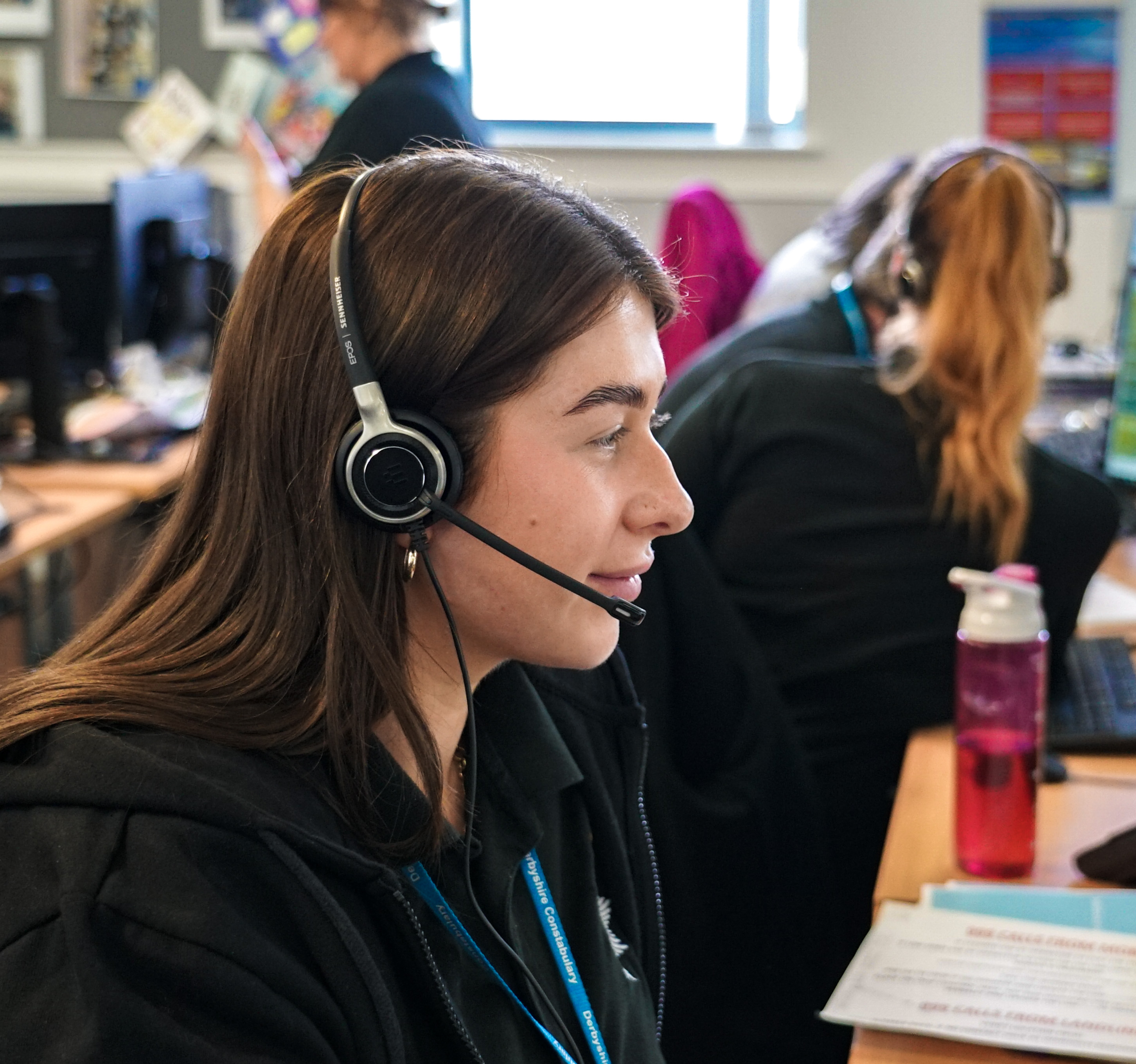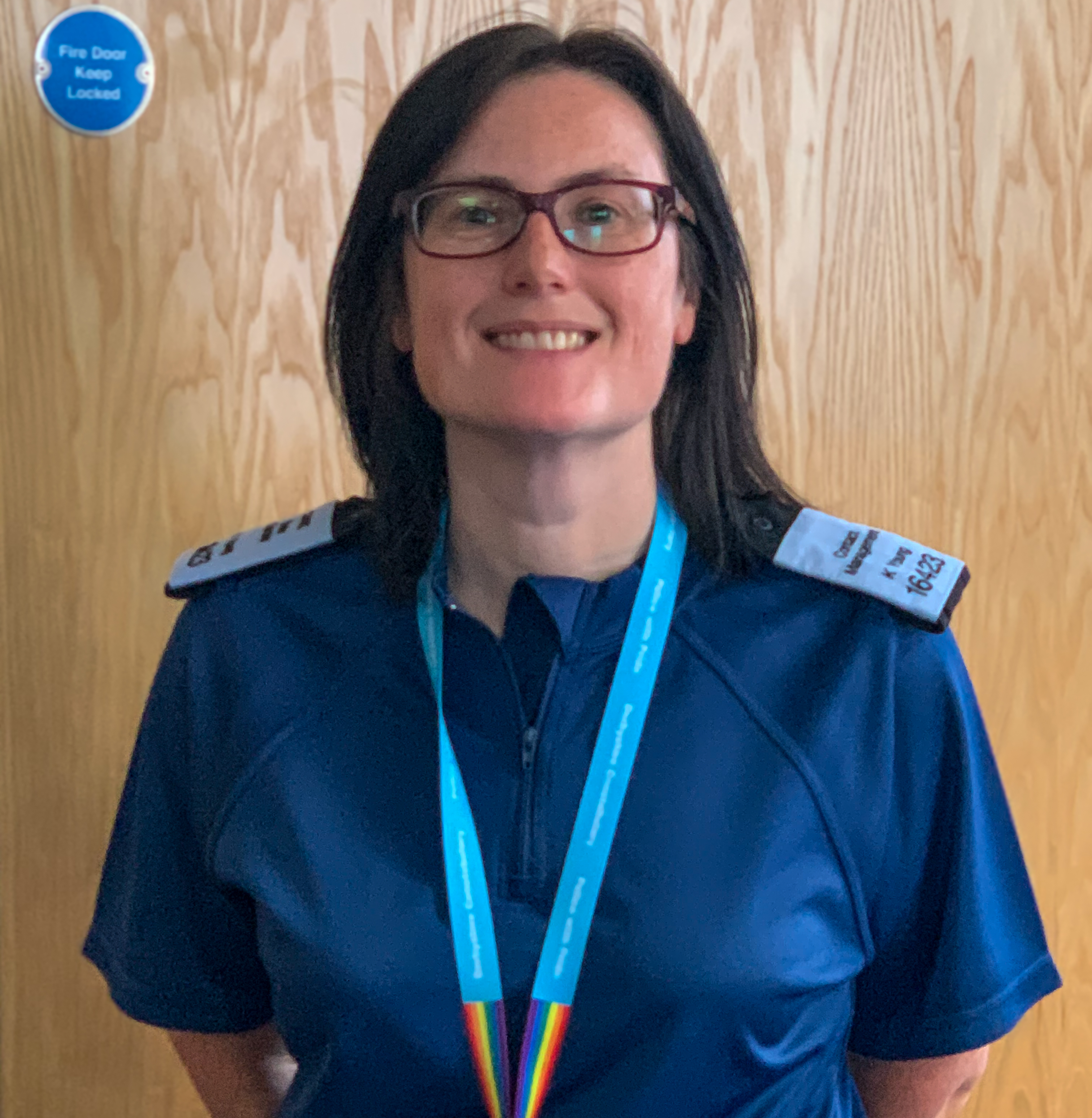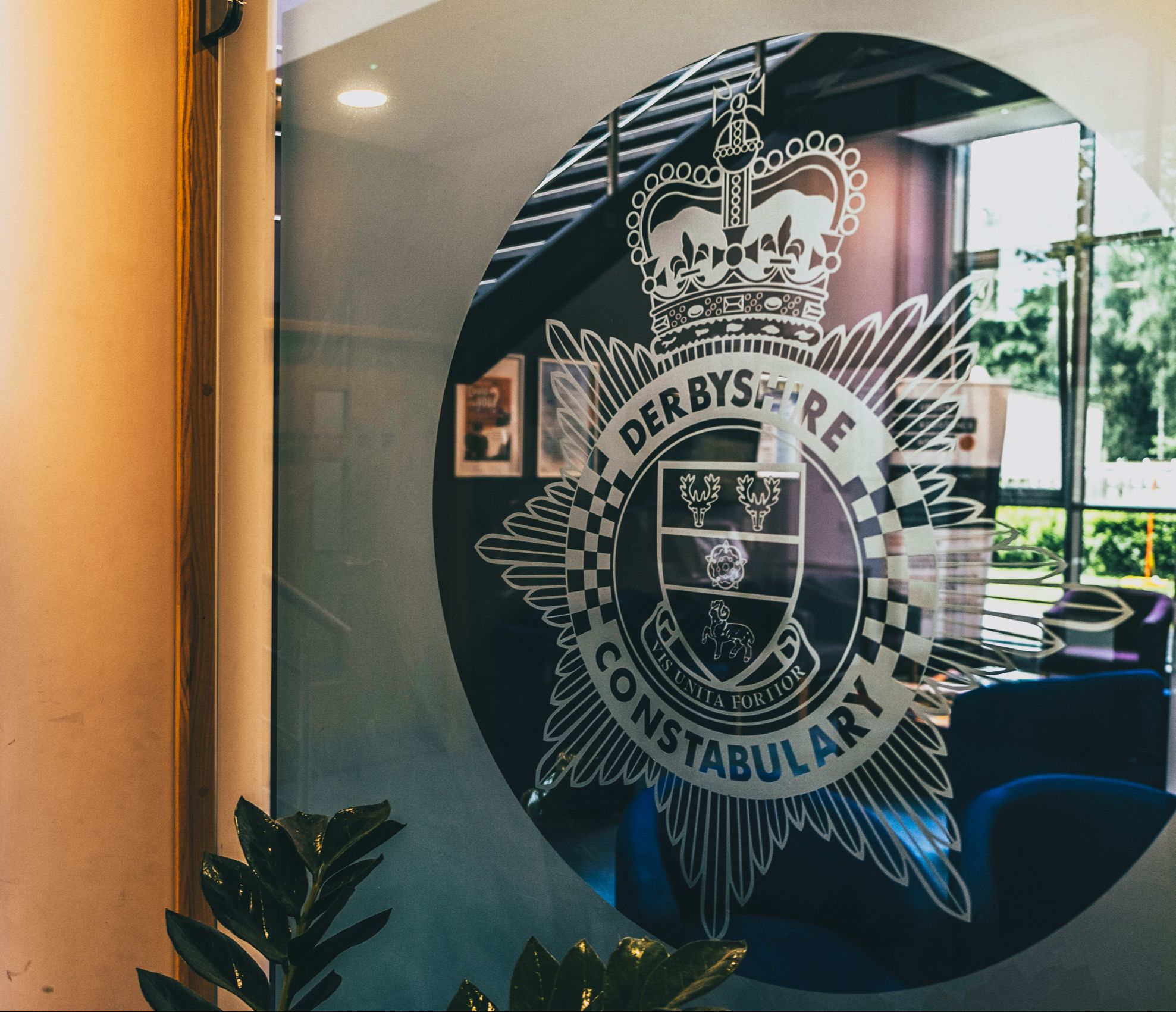What you could be doing | Contact Management
You’ll have the opportunity to make a difference when it truly matters
Being a Contact Management Operator
Join Contact Management and you’ll be a key member of the team that handles the majority of incoming contact for Derbyshire Constabulary. You will provide a first-class service to the public, and interact with a vast array of people, who may never have contacted the police before.
You’ll have the opportunity to make a difference when it matters. There are distinct job roles within the department and you will be allocated dependent on where vacancies sit at the point of recruitment. For Operator roles you need to be flexible, as we work a 12 hour, four-on, four-off pattern, including overnight, at weekends and some bank holidays.
We are also offering part-time opportunities (up to 24 hours per week) 6pm – 12 midnight and 9am – 3pm, various working patterns are available. Specific information regarding working patterns will be provided at interview stage.
Salary is £24,462 - £29,874 (pro rata if part time). You will receive additional enhancements to reflect the shift and weekend working, including a 20% shift allowance and weekend hours payment where applicable. This could equate to an additional £8,000-£9,000 per annum in total for full time positions.
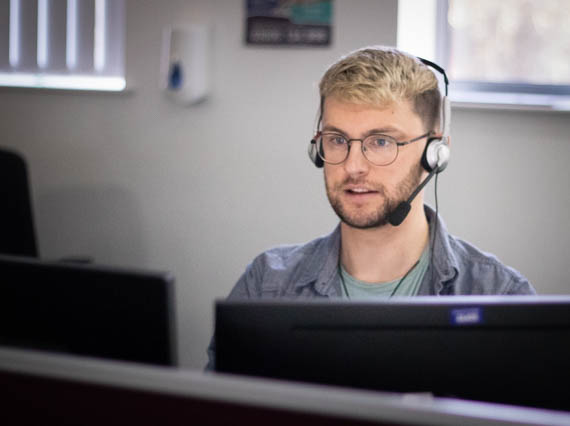
Our call handling team
Call Handler
As a call handler you are the first point of contact for the public and other agencies to access help, often in emergency situations. You will be responsible for identifying and assessing risk and will play a vital role in helping keep our communities safe, protecting the most vulnerable and preventing harm. Acting as the initial investigating officer for reports of incidents taken over the phone and via our digital channels, your job will be to ensure that all 101 non-emergency and 999 emergency calls are answered promptly and managed effectively. Recording incidents, investigating, and resolving enquiries, gathering sufficient details to risk assess, listening for vital details and logging information quickly and accurately - all are aspects of a role where every call has to be handled professionally. The role could never be described as a regular Call Centre job, no two days are alike. You will encounter distressing, life-threatening, and sad situations where you will need to adapt your communication style
Dispatch Controller
A Dispatch controller picks up a call for service that requires deployment once it has been initially dealt with by a call handler. Dispatchers have the critical role of managing a list of incidents and the police resources on the ground. Dispatchers are the invisible link between the public and the police, they will manage and assess risk and deploy the nearest and most appropriate resource to an incident. They must be alert to other incoming priorities and officer contact via the airwave radio. Dispatchers are also the lifeline for frontline officers, ensuring their safety, and have the ability to send in extra resources quickly if the situation warrants it. As a Dispatch controller you are also responsible for answering 999 emergency calls, ensuring they are answered promptly and managed effectively whilst logging information quickly and accurately. Dispatch Operators also deal with calls from other emergency services and outside agencies.
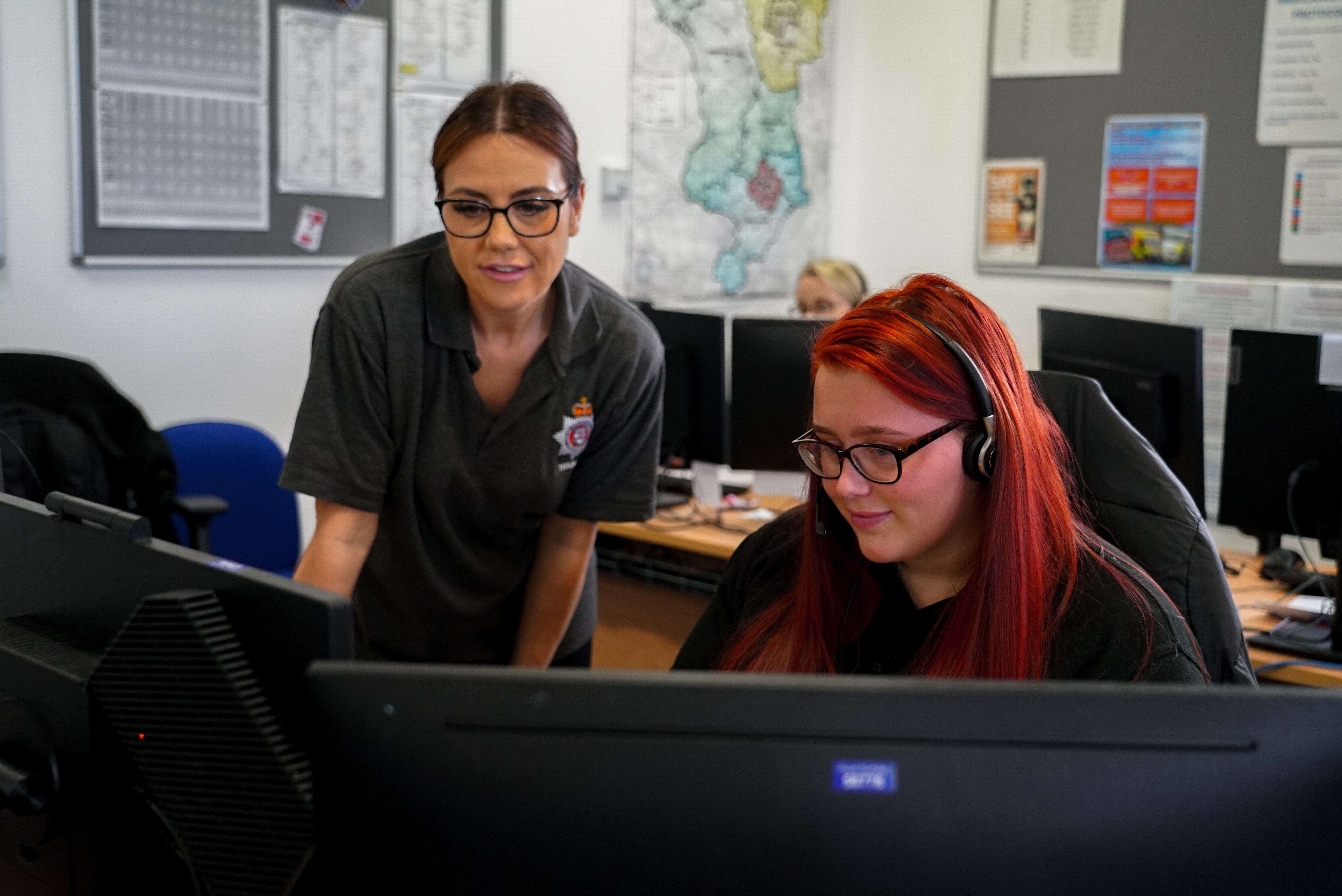
Typical shift pattern
It can be difficult to know if shift work will suit your life before you are in a role. Here we have outlined a typical shift pattern to give you an idea of how it could work fo you:
|
|
Mon |
Tue |
Wed |
Thu |
Fri |
Sat |
Sun |
|
Week 1 |
0900-2100 |
0900-2100 |
1500-0200 |
1500-0200 |
RD |
RD |
RD |
|
Week 2 |
RD |
0700-1900 |
0700-1900 |
1900-0700 |
1900-0700 |
RD |
RD |
|
Week 3 |
RD |
RD |
0700-1900 |
0700-1900 |
1500-0000 |
1500-0000 |
RD |
|
Week 4 |
RD |
RD |
RD |
0900-1800 |
0900-2100 |
1700-0200 |
1700-0200 |
|
Week 5 |
RD |
RD |
RD |
RD |
0700-1900 |
0700-1900 |
1900-0700 |
|
Week 6 |
1900-0700 |
RD |
RD |
RD |
RD |
0700-1900 |
0700-1900 |
|
Week 7 |
1500-0000 |
1500-0000 |
RD |
RD |
RD |
RD |
0900-2100 |
|
Week 8 |
0900-2100 |
1900-0700 |
1900-0700 |
RD |
RD |
RD |
RD |
|
Week 9 |
0700-1900 |
0700-1900 |
1900-0700 |
1900-0700 |
RD |
RD |
RD |
|
Week 10 |
RD |
0700-1900 |
0700-1900 |
1500-0000 |
1500-0000 |
RD |
RD |
|
Week 11 |
RD |
RD |
0700-1900 |
0700-1900 |
1900-0700 |
1900-0700 |
RD |
|
Week 12 |
RD |
RD |
RD |
0700-1900 |
0700-1900 |
1900-0700 |
1900-0700 |
|
Week 13 |
RD |
RD |
RD |
RD |
0900-2100 |
0900-2100 |
1700-0200 |
|
Week 14 |
1500-0200 |
RD |
RD |
RD |
RD |
0900-1800 |
0900-1800 |
|
Week 15 |
1900-0700 |
1900-0700 |
RD |
RD |
RD |
RD |
0700-1900 |
|
Week 16 |
0700-1900 |
1500-0000 |
1500-0000 |
RD |
RD |
RD |
RD |

What you'll need
To be an operator you must hold a GCSE Grade C or equivalent in English Language or have 12 months’ work experience requiring the use of English Language to that standard. We’ll also be looking for:
- Experience of dealing with conflict or difficult situations in the workplace, where communicating concisely and in an accurate manner is required
- Excellent communication skills – specifically via telephone and radio systems
- Strong IT skills, including proficiency using Microsoft Office packages
- Excellent keyboard skills – at least 25 word per minute
- Experience of receiving information, identifying the significant points, drawing conclusions and initiating appropriate action in a working environment
- Good knowledge of Derbyshire
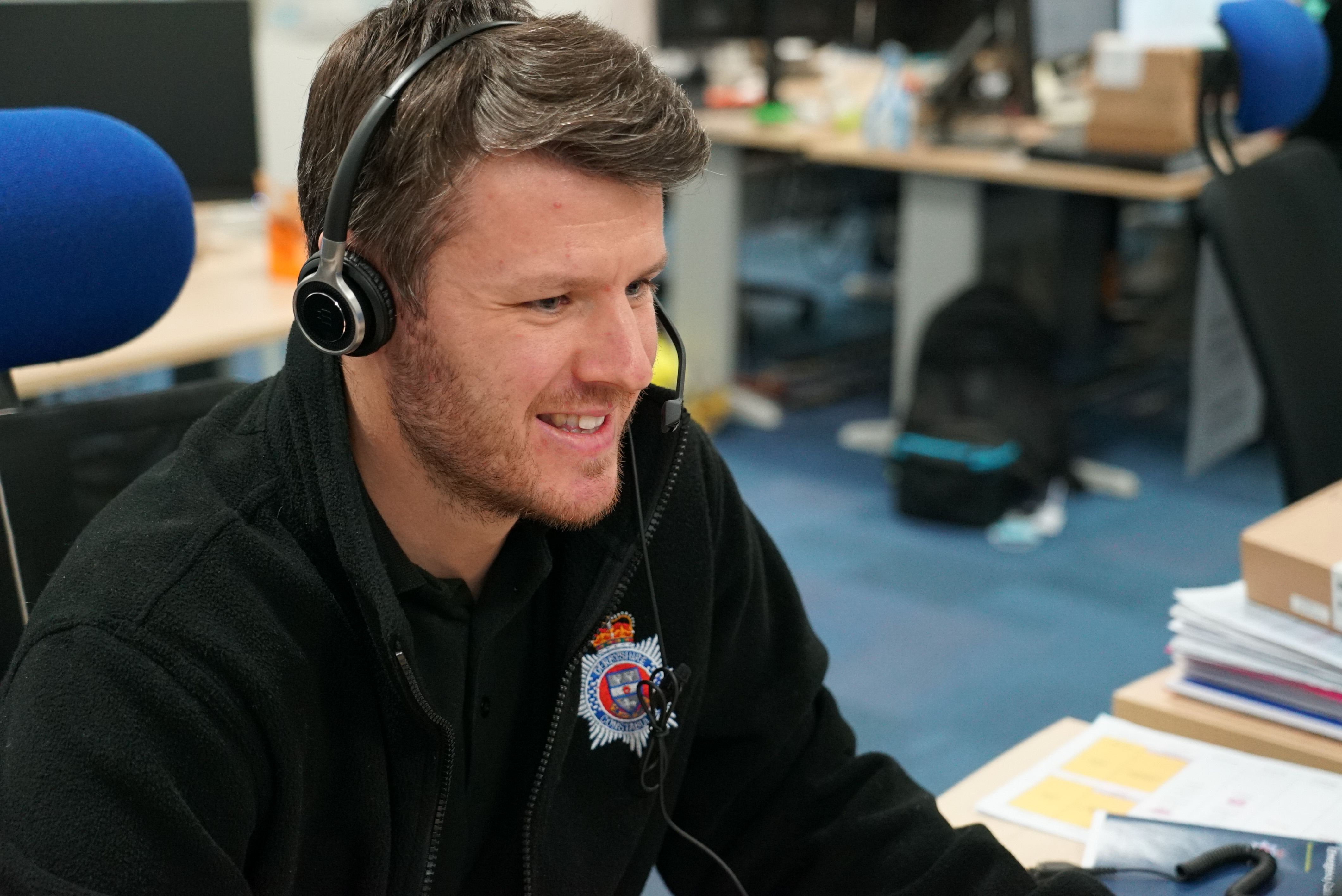
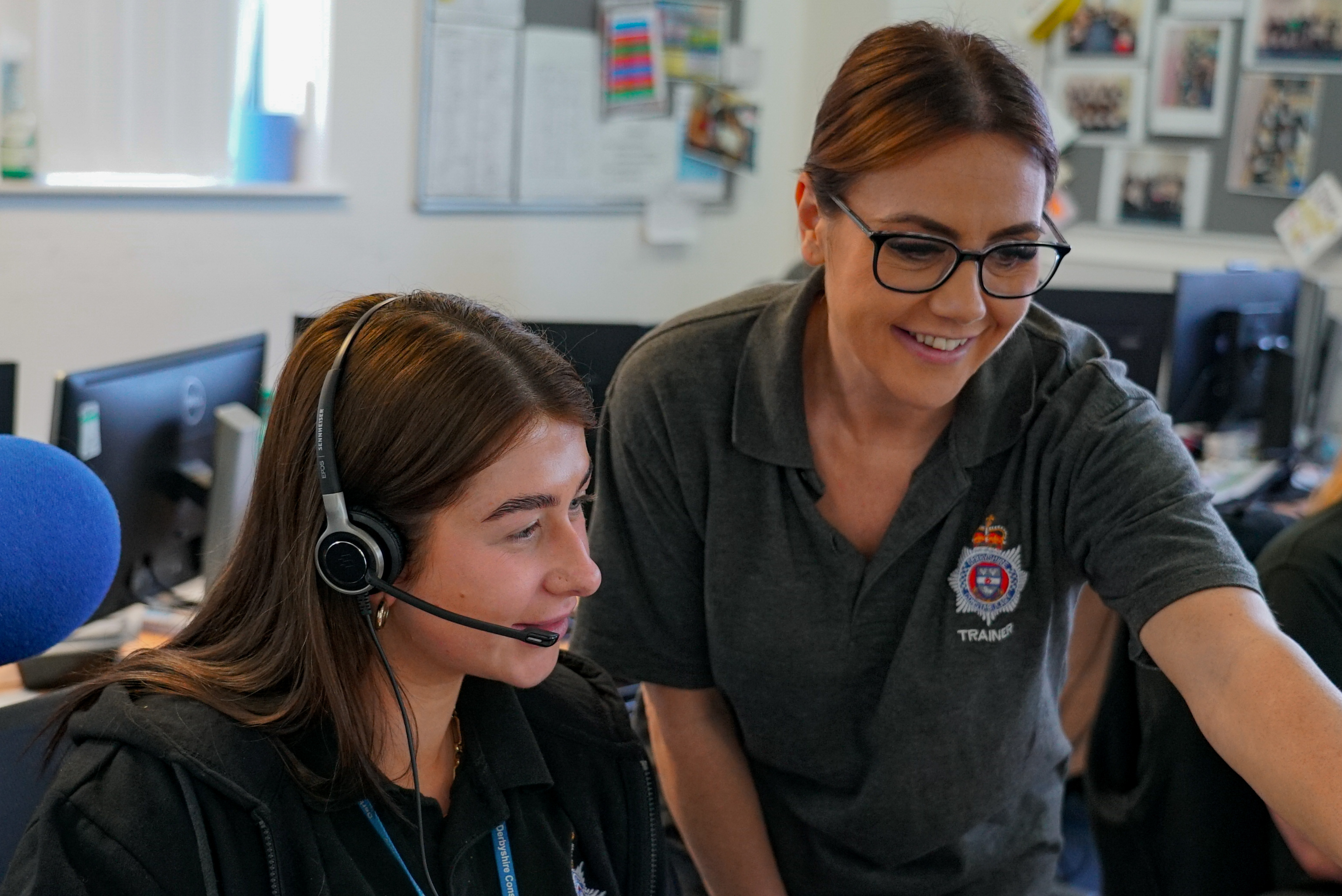
Investing in your development
You will begin your career with us as a call handler and attend a four-week classroom-based course which will provide you with the IT skills and knowledge required to start your call handling journey. Following the classroom phase of the course you will transition to your shift group pattern and will work one to one with an experienced tutor to begin taking live calls. This will take place over a period of four shift sets.
Following successful completion of the tutoring period, you will continue to be supported by your colleagues and supervisor as you continue you call handling career. Once you have become an experienced member of the team, shift training days and role related CDP are provided to help support and continue with your development.
There will be opportunity to further develop in the role of dispatch controller once you are established in your call handler role.

Meet some of the team

Why join?
To most of the people who contact us when they need our help and support, you are Derbyshire Constabulary. You’ll be the voice they hear, the reassurance they need. A calm, collected response at the end of a phone line or keyboard. That’s hugely rewarding. But it can be challenging too.
You’ll often be dealing with some of the most vulnerable people in our society and playing a critical role in our response to both emergency and non-emergency calls.
At times, you’ll be talking to people in potentially dangerous or vulnerable situations. They may be distressed or panicked. It’ll be down to you to stay calm, stay focused and determine the most appropriate response. So if you’ve got what it takes to help members of our community when they need our help, we’d love to have you working with us.
Recruitment process

